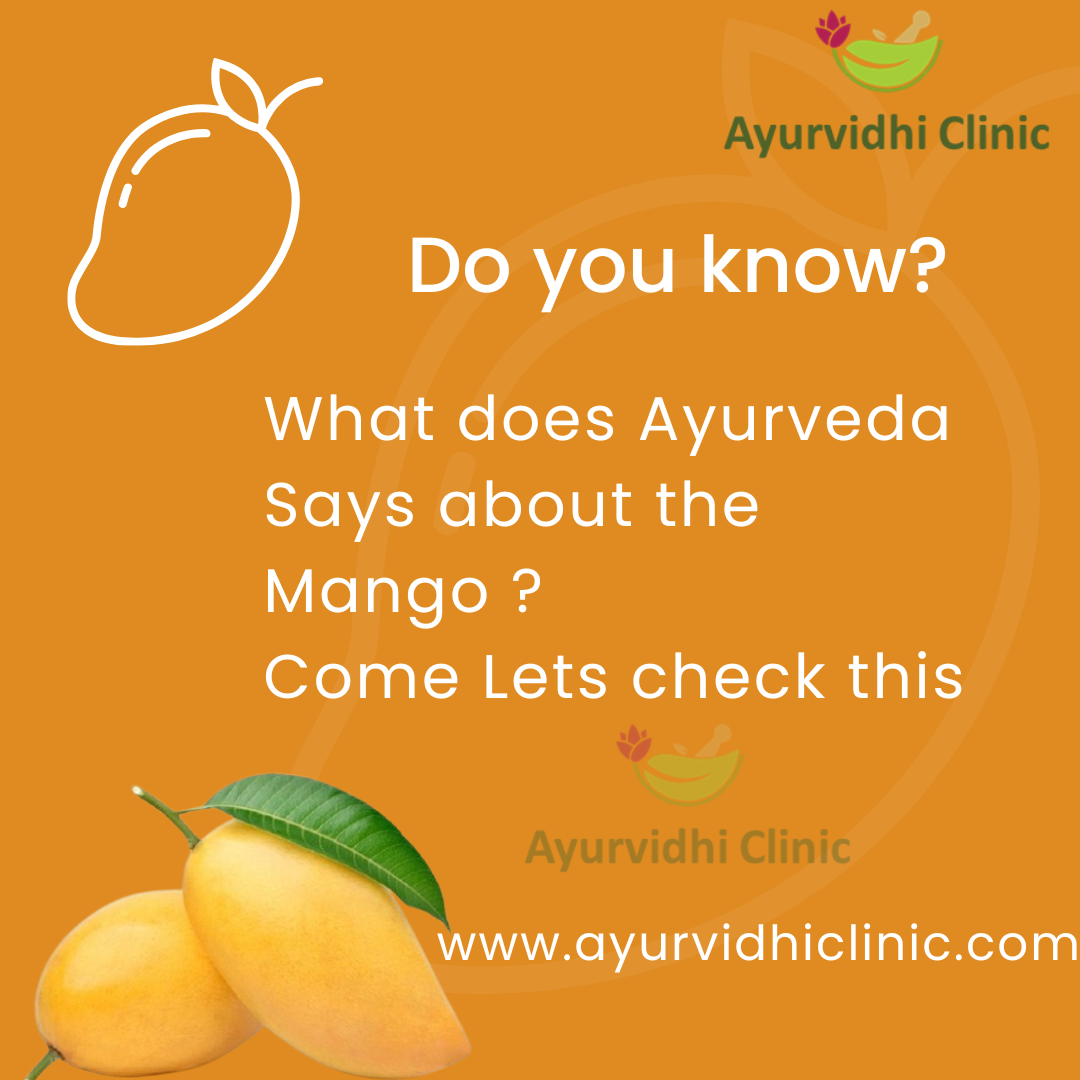In the scorching heat of the summer season, there is a golden treasure that nature bestows upon us that is none other than everyone’s favorite Mango. Revered for its divine taste and abundant health benefits mango holds an important place in Ayurveda for its medicinal properties. In this blog we are going to explore the ayurvedic properties of mango, the best ways to consume eat, whom to avoid its consumption other interesting things you might never know.
Introduction:
Mango is called Aamra in Sanskrit. And from Aamra the word Aam in Hindi, aamba in Marathi are derived or created. Mango is categorized in phala warga i.e. fruits categories in Ayurvedic texts. In Ayurveda, both raw and ripped mango’s properties are well described which we will see in detail. The Amara tree is considered very auspicious in Hindu culture so as in Ayurveda also due to its beneficiary properties. All parts such as leaves, flowers, fruit & seeds are used in various ayurvedic medicines for the treatment of various diseases.
Properties of Mango:
ह्रद्यं वर्णकरं रुच्यं रक्तमांसबलप्रदम्।
कषायानुरसं स्वादु वातघ्नं बृहणं गुरु॥
पित्तविरोधि संपक्वामाम्रं शुक्रविवर्धनम्॥
- सुश्रुत संहिता.
Rasa (Taste): The taste of perfectly ripped Mango is sweet i.e. Madhura with a little hint of sourness which is Aamla rasa along with some astringent taste Kashaya rasa.
Virya (Potency): The Virya or potency of mango is Sheeta means cold in nature.
Vipaka (Post Digestive effect): The Vipaka i.e. post digestive effect of mango is Madhura means sweet. This gives all the good effects of the Madhura rasa mentioned in Ayurveda.
Health benefits of mango in Ayurveda:
The Aamra is guru heavy to digest, Snigdha, are some common properties described in the Ayurvedic text, But as per its raw and ripped state is described in detail below;
Guna (Quality): The mango fruit quality or guna is described into two major categories which are raw and ripped.
Raw Mango:
They are good appetizers, and increase secretions of saliva along with digestive enzymes, but are prone to vitiate and impure blood.
Ripped Mango:
The properties of a perfectly ripped mango are as follows:
- Support Heart Health
- Improves skin texture
- Improves digestion
- Strengthen the Rakta & Mansa dhatu
- Balances Vaata doshas in the body
- Improves sperm production
Other health benefits of mango:
As per modern science, mango contains all the 20 essential vitamins which are important for human beings. The main ones are A, B6, C, E, and K which are found in perfect amounts. Vitamin C is a good anti-oxidant that prevents aging and good skin texture. Whereas vitamin B6 is responsible for good skin & hair growth. It also contains both soluble and insoluble fibers in good amounts. The insoluble fiber is good for gut health, lower constipation, and lower cholesterol, and also helps in maintaining skin & hair health.
How to consume mango in summer?
The raw mango is little pitta aggravating in nature so for that it is advised to consume by making some beverages like aam-panna or sharabat which contains sugar or jaggery to nullify its ill effect.
The perfectly ripped mango can be consumed as fruit or by making Amaras or by making a milkshake.
Yes, mango can be consumed by making a milkshake. Because it’s the only fruit that can go with milk and be consumed as a milkshake.
Whom to avoid eating mangoes?
Patients suffering from Kapha disease like cough, cold, fever, weak digestion, loose motion and diseases due to vitiated Rakta dhatu should avoid consuming mango.
For such ayurvedic food guidelines follow us on our Instagram page @ayurvidhi_clinic
For Ayurvedic diet recommendations for your current health condition & Ayurvedic Panchakarma treatment contact us at Dr. Bathe’s Ayurvidhi Clinic – Ayurveda & Panchakarma Clinic the best ayurvedic panchakarma clinic in Lohegaon, Dhanori and Porwal road.





